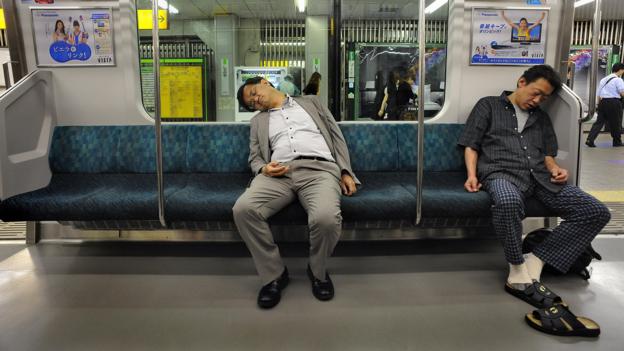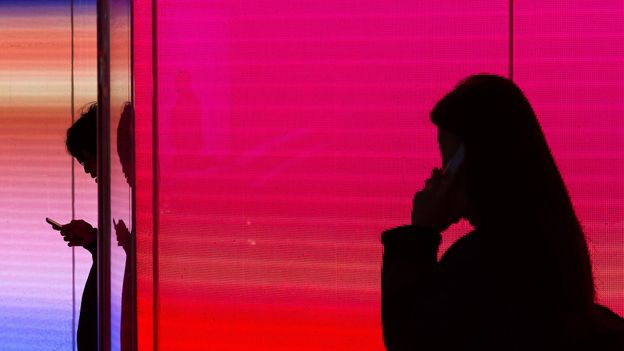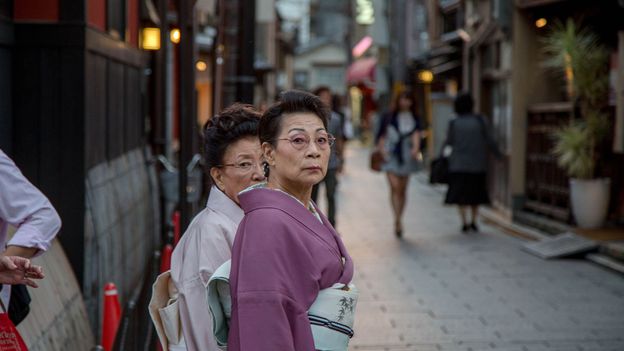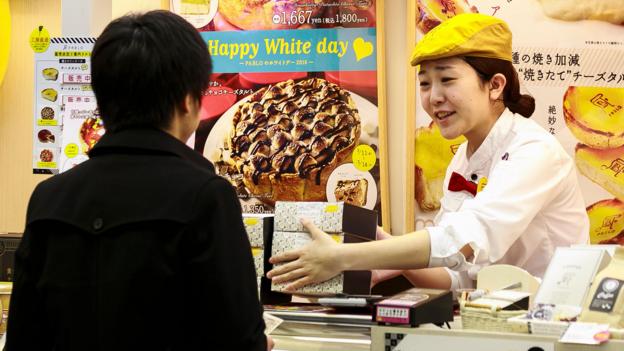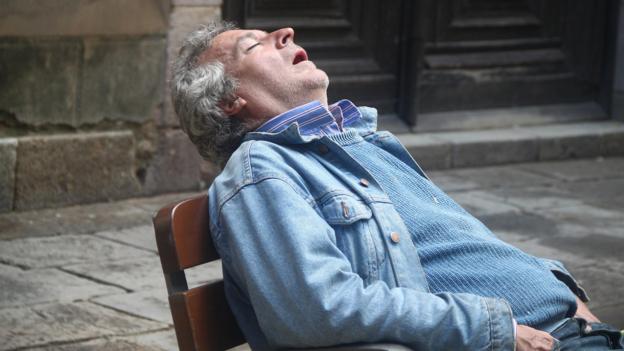OECD statistics, in its 2019 Gender Data Portal, reveal that Japan has the shortest average sleep in the world at 442 minutes per day a year – approximately 7.3 hours a night. South Korea also scored low at 471 minutes, whilst many countries averaged more than 500 minutes (8.3 hours) including Britain, France, Spain, the US and China. A new law capping overtime came into effect in Japan in April 2019 to combat the culture of long working hours that has contributed to workers’ short sleep cycles; the new law limits legal overtime work to 45 hours a month and 360 hours a year.
But companies have also begun taking matters into their own hands, encouraging employees to go for a ‘hirune’ – which literally translates as “lunchtime sleep”. At the headquarters of GMO Internet Group, a Tokyo-based company that provides services like web hosting, strong scents from aromatic lavender oil fill an unused conference room during lunch breaks, aiding the employees who occupy most of its 27 beds to sleep.
“What we encourage here is not inemuri,” says Sae Takahashi, the group’s chief spokesperson. “With hirune, one is consciously making an effort to rest within a short space of time. This way, we think they can effectively switch between business and break times, creating a better working environment.”
Called GMO Siesta, the facilities are available every day from 12:30 for an hour. “The habitual aspect of hirune is similar to the concept of siesta,” Takahashi continues. “Some use the room as part of their daily routine to help them rejuvenate for the afternoon. For those with children, it helps them catch up on sleep that they may otherwise miss out on at home.”

